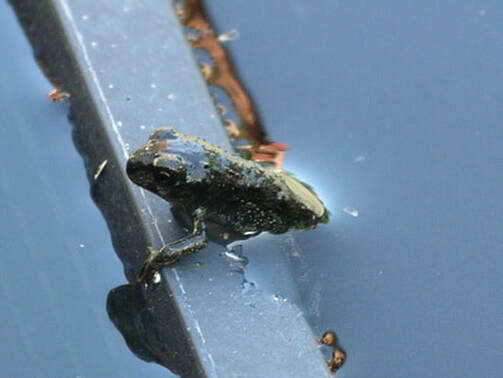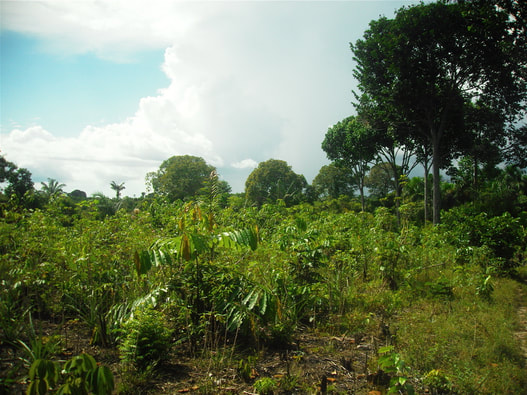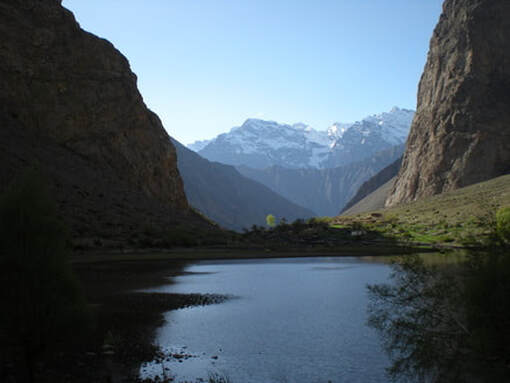PAST PROJECTS
Targeting Agri-Environmental Practices
|
Making Ecosystem Services Count in the
|
Landscape-level forest dynamics and
|
Alternative Energy Systems and Forest Management
|
Survival and growth of Western toadlets
in silted pond systems

Sediment and nutrient loading in freshwater systems are leading causes of aquatic habitat degradation in North America. The impacts of fine-sediment and nutrient additions on the growth and survival of Bufo boreas tadpoles and emergent toadlets was investigated in mesocosm and exclosure experiments. Tadpoles receiving sediment additions experienced slower growth rates and reduced survival to metamorphosis. Nutrient additions also lowered survival, but had no impact on other measured parameters. Measures from tiles within the exclosures demonstrated that tadpoles were able to reduce the standing stocks of periphyton by 35-80% and to clear virtually 100% of all deposited sediment from grazing surfaces. Under natural conditions, such grazing pressure and sediment removal activities could lead to changes in the algal community and consequent shifts in invertebrate grazers. Together, these results highlight a potential role for Bufo boreas tadpoles as ecosystem engineers in temperate pond habitats.




